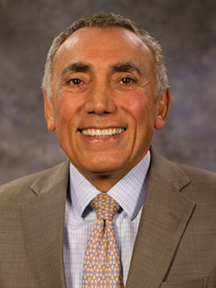
|
OpEdNews Op Eds H3'ed 2/28/16 Beneath the Surface, Iranian Elections Show Progressive Populace is Heard |
|
| Rate It | View Ratings |
Dr. Fariborz Ghadar is Senior Advisor and Distinguished Senior Scholar Center for Strategic and International Affairs in DC. Additionally, he is the William A. Schreyer Professor of Global Management, Policies and Planning and Founding Director (more...)

OpEdNews depends upon can't survive without your help.
If you value this article and the work of OpEdNews, please either Donate or Purchase a premium membership.
If you've enjoyed this, sign up for our daily or weekly newsletter to get lots of great progressive content.
Most Popular Articles by this Author: (View All Most Popular Articles by this Author)
Immigration & the Pope-- What is the Issue?
What does being a world-power have to do with character?
Grey Zones of Europe
It's Time for the IMF to Recognize the Importance of the Yuan
Beneath the Surface, Iranian Elections Show Progressive Populace is Heard
The Three M's.: Marshall Plan, McCarthyism and Muslims
To View Comments or Join the Conversation:



